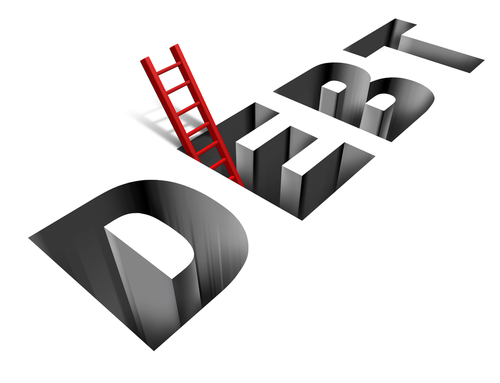According to a recent study, almost half of Americans have more credit card debt than savings. Whether your debt comes from student loans, credit card spending, or unfortunate circumstances, it is in your best interest to pay it off as quickly as possible. Interest charges can keep in debt for years past the time it would take you to pay off the initial loan amount. Many people get trapped in “minimum payment” plans, which often require payments that aren’t high enough to cover the monthly interest, let alone pay off the loan in the allotted time.
Luckily, there are Lots of Options for Debt Relief. Here are a few:
Student Loan Forgiveness
There’s been a lot of talk lately about Obama’s dedication to reducing student loan stress on current students and those with student loan debt. A lot of companies are maximizing on this exposure by touting that they are offering the solutions that are being talked about in the media. But no legislation has yet been approved, and there is no mass loan forgiveness program as of yet. Most of these companies just want your personal and financial information, or have you sign up for a program that makes them money, rather than saves you anything. Additionally, if and when any student loan forgiveness legislation is approved, it will only affect federal loans, not private ones.
Debt Consolidation
If you have multiple loans and lines of credit with varying interest rates, you may benefit from consolidating your debt. This basically boils down to getting a new loan to cover all your precious ones. This means you’ll only have one payment, and that you could potentially pay less in interest. Like all of these debt relief options, consolidation is not for everyone. Make sure you compare your options, read reviews of consolidation companies, and pay attention to the fine print in any plans you consider. The main point of consolidation is to decrease the amount you’ll pay in interest, so make sure you can reach that objective before signing any agreements.
Settlement
Unlike consolidation, loan settlement is not taking out a new loan. In settlement, you pay a debt settlement company to negotiate with your creditor for a lower payment. Creditors might agree to settle out of fear that you’ll declare bankruptcy and they won’t see an money at all. Settlement can have a negative effect on your credit, and the fees that the settlement company charges could add up to more than you originally owed, so be sure to do your research before committing.
Bankruptcy
If you have no feasible way to make your payments, you might consider declaring bankruptcy. This does wipe your financial slate clean of debt, but has a huge negative impact on your credit score. It also means that you’ll probably have to give up any assets that you do have left, as you can’t declare bankruptcy if you have resources to work with. Declaring bankruptcy is always a last resort, and should not be done without considering all other options.
Concentrated Payments
If you are able to make your monthly payments, and simply want to reduce the amount of interest you have to pay, there are a lot of strategies to decrease your debt faster.
From stricter budgeting using the David Ramsey’s envelope method or snowball effect strategy, many financial gurus have advice for you to consider. Giving up extraneous expenses for a couple of years in order to focus on paying off debt can increase the amount of extra money you have later. Selling items you don’t need is an effective way to raise extra cash, and learning to live on a budget can prevent you from going back into debt in the future.
Whatever debt relief method you choose, make sure you do your research and work with reputable companies and people. Financial scams are all around, hiding under the guise of viable options; you can never be too careful.
Frank McCourt stays current in the financial wolrd, and writes about the troubles therein.





